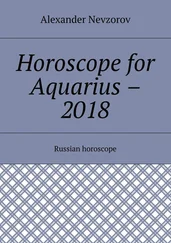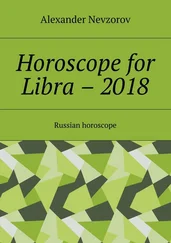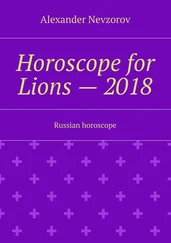It is perhaps worth noting in passing that all Russian spy payments and accounts are made and calculated in United States dollars. The Red Army net had the strongest objections to dealing in any other sort of currency and went to endless trouble to secure dollars for payment.
Sonia said that in normal times I would have been sent to a special school in Moscow for at least year 011 recruitment. There I would have been taught all the tricks of the trade such as W/T transmission, micro-photography, secret inks, sabotage instruction, etc. As it was thought that an international crisis was imminent. Moscow had decided to dispense with this in my case and 1 was to return to Germany at once and study all these and kindred subjects on my own account.
Sonia gave me a cover name, Jim, and some idea of the elements of the game, especially in the matter of contacting my superiors or others in case of emergency. If I lost contact with her I was to attempt to get into touch with the M. I. Directorate in Moscow through a Soviet military attaché. I was to go to the Soviet M. A. in any country other than the one in which I was working or of which I was a native. In my case, of course, this ruled out Berlin and London. I was to use any device or artifice that I could think of to get into the presence of the attaché himself and get him alone, even to the extent of threatening any minor official with punishment by the N. K. V. D. I was also expressly forbidden to mention my name or show my passport to any official at the embassy - even the attaché on my first visit. Having reached the presence, I was to hand him a message for transmission to Moscow. In my case this would run approximately as follows: "Jim operating in Jersey and a native of Brazil has lost contact with Sonia who lives in Sicily where she has a musical box and wishes to re-establish communication with the director. " In other words "Foote operating in Germany and a native of Britain has lost contact with Maria Schultz who lives in Switzerland where she has a wireless transmitter and wishes to re-establish contact with the D. M. I. " Only when the attaché had received a reply giving the necessary instructions and receiving permission from the D. M. I. to ask for my identity was I allowed to disclose my name.
If for some reason I was unable to establish contact with a Soviet military attaché and the need was urgent (and funds permitted), I should take a ticket for the Far East via the Trans-Siberian Railway and while in Moscow call at the headquarters of the Red Army, which would put me in touch with the department concerned. Only in a last resort was I to go to Russia on an Intourist ticket. Soviet agents were not allowed to keep passports which contained Intourist visas, as these might indicate to the outside world that the holder was favourably inclined toward the regime. In such cases the passport was taken away and a special department of the Soviet Intelligence removed the offending pages. This was a lengthy process and so this course was discouraged.
I was also told that later on I should be given a "place of conspiracy" which would be a fixed spot in some nearby country- probably Belgium or Holland. Certain fixed days and hours would be given me for contact and I would be told my own passwords and distinctive objects and also of course those of the contact. I was, however, to go there only if I lost contact with my group leader, Sonia, or on orders from the director.
All these arrangements sound slightly academic in the light of subsequent events. Cooped up in Switzerland, surrounded by countries at war with my own and later at war with Soviet Russia, the chances of meeting a Soviet attaché or of obtaining an Intourist visa were slight. As for places of conspiracy, these would have to be confined to Switzerland itself. In point of fact the emergency, luckily, never arose, as from the time that we were surrounded until the day of my arrest we always had at least two wireless sets working to Moscow at any one time.
While still in Lausanne, Sonia asked me to write out a report on political and economic conditions in Germany. She had also shown great interest in Hitler and my little Munich restaurant- which I had mentioned to her in the course of casual conversation. She sent my report back over her secret transmitter to the director and must have sent a separate report on the Hitler episode as I was told that the director was extremely interested in the report on Hitler and instructed me to check up on his movements and habits as well as I could.
Sonia also told me that I might expect to receive a visit from a new collaborator who would contact me in Munich and with whom I should have to operate in future. She added that it was possible that we would be asked to carry out some act of sabotage, the actual occurrence of which the director could check from his study of the press. I (and I gathered that this was a general instruction to all agents) was therefore to plan a possible sabotage operation and keep it, as it were, on ice until such time as the director authorised it. Such a scheme could perform no really useful function except that of checking the reliability of an agent and his planning ingenuity, as it was unlikely that even the most fanatical Red agent would put his head in the noose by some really profitable sabotage scheme when he could much more easily and quietly undertake some small-scale arson which would duly appear in the local press and satisfy Moscow.
I returned to Germany after my short and this time moderately constructive trip. I at least knew now for whom I was working, even if the precise details of what I was supposed to do were still lacking. I was not unnaturally curious as to the identity of the "collaborator" whom I had been promised. I could only hope that he might be somewhat more versed in the technique of espionage than I was. In this respect I was to be sadly disappointed. I do not know whether the reader has suffered from the same nightmare that I used to have as a child. I would dream that I was about to conduct a symphony orchestra and the whole audience was assembled, ready and waiting, and the orchestra poised for the first tap of my baton. At that moment I would suddenly realise that not only did I not know the piece which I was supposed to conduct but also that I was unable to read a note of music. On such occasions in dreams, one merely wakes up in a cold sweat. In real life, working for the Russians, it happened only too often- and there was no awakening.
Before I left Sonia gave me U. S. $900 ($450 for three months' salary and a similar sum for three months' expenses). My instructions were not varied. Indeed variations on such a vague theme were hardly possible. I continued to lunch at the Osteria and observe the Fuehrer at such times as he visited the place, and otherwise maintained my previous contacts and continued to learn German. The place was, of course, still full of tourists basking in the twilight of European peace. English and American, they still continued to flock to Munich to observe the picture scenes of the past and the preparations for the future. The former they found more interesting. Van Gogh had not yet been banished from the Neue Pinakothek and only the memorial to the fallen of the Munich Putsch really marked the New Germany. The shadow of the Chamberlain umbrella still lay heavy over the political scene. Anyone who delved deeper could see how thin this veneer of peace really was. Conversations with my S. S. friends and the evidence of my eyes convinced me that it was only a matter of time before the military machine took control and the country went to war. I felt sure that when this happened England would be involved and consequently anything that I could do then or later against Germany would be of value. The future position of Russia was then, as always, enigmatic. There were rumours going about Munich of a possible German-Russian rapprochement but these did not seem to tally with the oft-repeated tirades of Nazi leaders against the Bolshevik Menace and the Red Terror. In the interval before the storm burst I was prepared to go on with the tasks given me by Sonia. The future could take care of itself- and the future did.
Читать дальше












